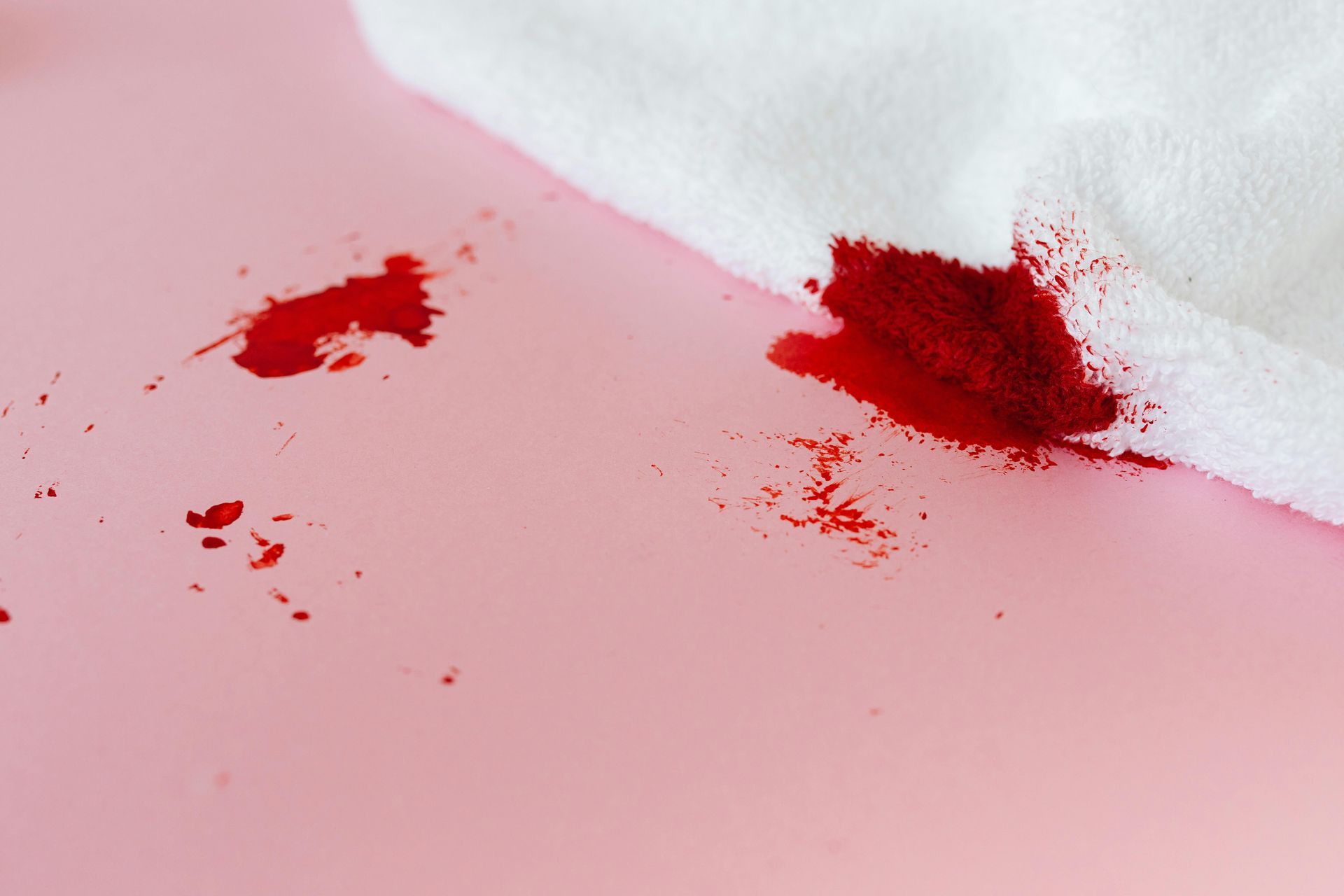BLEEDING
Bleeding From the Navel:
In recent years, recommendations for newborn umbilical cord care have changed. In past years, cleaning the area with alcohol was advised, but current guidelines are to keep the area clean and dry and allow it to heal naturally. It is not uncommon for a small amount of blood to be noticed on the navel after the umbilical cord falls off. This is usually not a cause for concern.
If the bleeding does not create a spot larger than a quarter on clothing, it is generally insignificant and the bleeding will typically stop on its own. Significant bleeding from a newborn’s umbilicus is extremely rare. If your baby loses enough blood to soak a cloth diaper to the size of a quarter, you should contact us for an appointment.
Any redness of the skin surrounding the navel, or pus draining from the area, are also signs that an office visit is necessary.
Vaginal Bleeding in the Newborn:
Occasionally, because of the effect of mother’s hormones, infant girls will have a small amount of vaginal bleeding the first few days of life. This newborn menstrual bleeding will stop spontaneously and requires no treatment. It is not serious.
Infant girls also often have a thick white discharge from the vagina due to maternal hormones. This too is normal.
Nose Bleeds:
Nosebleeds, also known as epistaxis, are a common occurrence among children. They usually happen without warning and can be alarming but are rarely a cause for serious concern. The most frequent cause of nosebleeds in children is dry indoor air, which dries out the nasal membranes, making them more susceptible to bleeding. Other common causes include nose picking, frequent nose blowing due to allergies or colds, and minor nasal injuries. Less commonly, underlying health issues such as clotting disorders or high blood pressure might be responsible.
When a nosebleed occurs, it is important to remain calm. To stop the bleeding, have the child sit upright and lean slightly forward to prevent swallowing the blood. Pinch the soft part of the nose gently with a tissue or damp cloth and maintain pressure for about 5 to 10 minutes, instructing the child to breathe through their mouth. Avoid having the child lean back, as this can cause blood to run down the back of the throat and potentially lead to coughing or vomiting.
After the bleeding stops, advise the child to avoid vigorous nose blowing or activities for a few hours to prevent re-bleeding. In terms of treatment, most nosebleeds can be managed at home with basic first aid measures. Keeping the child’s nasal membranes moist with a saline nasal spray or applying a thin layer of petroleum jelly can help prevent future nosebleeds. Using a humidifier in the child’s room can also alleviate dryness and reduce the risk of nosebleeds.
Please know that the use of humidifiers can cause the growth of black mold your home. Although the humidifier is good for your child’s dry nasal lining, it is bad for your home in Arkansas. Limit its use.
If nosebleeds are frequent, occur without an apparent cause, or if the bleeding is unusually heavy or does not stop with basic measures, it is important to seek medical attention. In such cases, our physician will recommend a medical evaluation to rule out any underlying causes. This evaluation could include a physical examination and, if necessary, blood tests to assess clotting function or to check for other relevant health issues.
Rectal Bleeding:
Rectal bleeding can be a more serious type of bleeding. Although it can be due to something as simple as a small tear around the rectum often seen in children with constipation, children with any type of rectal bleeding should be scheduled for an office visit during regular office hours. Food allergy can be a cause.
There are other causes as well. If the bleeding is severe, more than just a few drops of blood coming from the rectum, you should seek immediate medical attention.
Other types of Bleeding:
Other types of bleeding such as blood in the urine, coughing up blood, wounds that fail to stop bleeding, etc., are potentially serious and you should notify the doctor.


